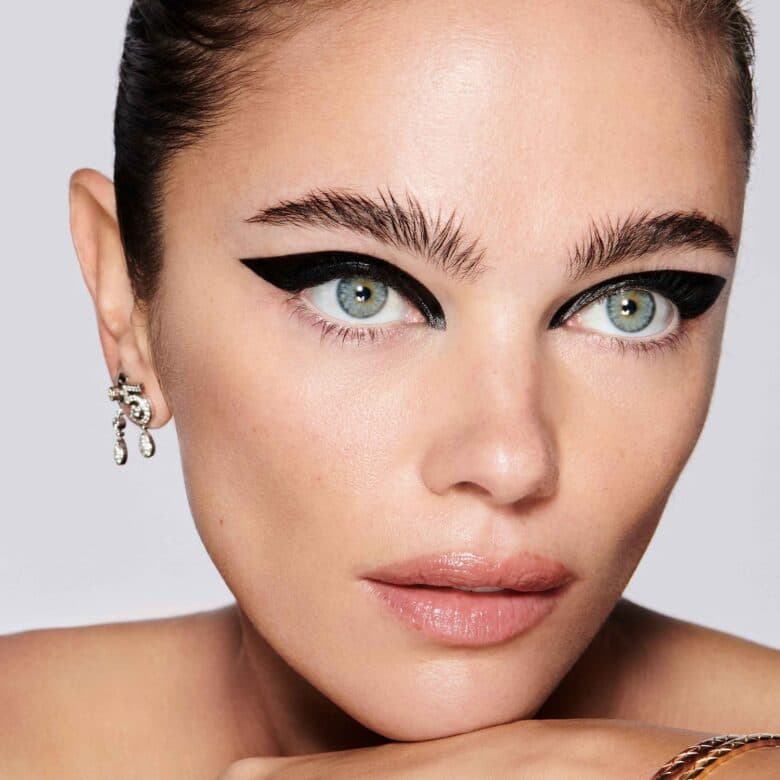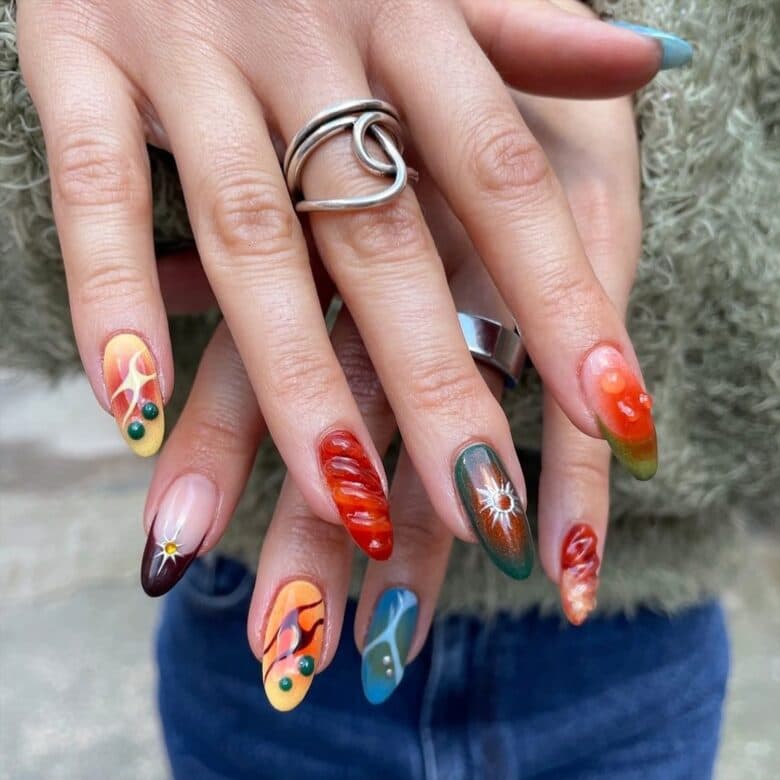Erin Aniker’s people-driven illustrations are charged with political intent
Partially informed by memories of her mother marching for Turkish and Kurdish women’s rights, Erin Aniker’s illustrations have a clear political bent. Rather than privileging a specific point of view, the Turkish-British artist celebrates the multiplicity of perspectives in our modern, multicultural society and works to ensure that each of these voices feels represented. Populating her designs with a diverse mix of characters from different backgrounds and cultures, her work delivers a lesson in the power of representation.
With unity and collective power recurring as themes throughout Aniker’s designs — often consisting of women and non-binary femmes coming together in protest or raising one another up in celebration— it’s no surprise that a similar ethos manifests in her life off the page. In the lead-up to this year’s general election, Aniker has collaborated with Creativity4Change, a collective of artists using Instagram to platform their creative talents in support of the Labour campaign. We sat with Aniker to talk about her involvement with Creativity4Change and why it’s so important for her to create politically-engaged work in today’s social climate.
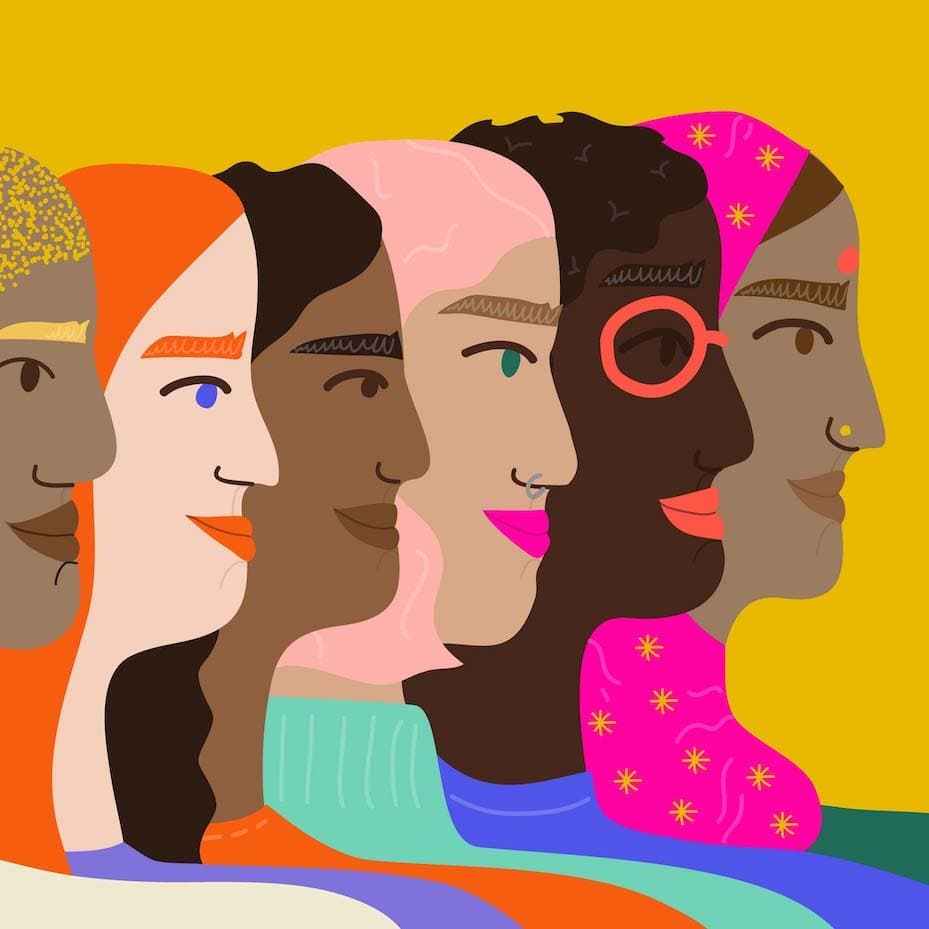
How did you get your beginnings as an illustrator?
I was inspired by illustrated children’s books and always kept an eye out for drawings and comics in lots of different newspapers and magazines. I loved libraries and would spend a lot of time in them when I was in primary school and even in nursery.
There’s been a resurgence of interest in illustration over the course of the 2010s. Why do you think people are increasingly drawn to this form of visual story-telling?
We’re living in this bizarre time where truth and ‘alternative truths’ are completely muddled up together and I think illustration has this way of depicting this funny in-between state in a way that other visual forms such as photography can’t quite do in the same way. I think it’s also a really hopeful art form full of endless possibilities. Everything starts off with a blank page which you can fill very quickly with depictions of a more feminist, equal and inclusive future which you hope in turn might help in some way to make the illustration reality.
You’ve previously mentioned that memories of your mother’s involvement in activism have helped shape your work. In what other ways has this been inspiring?
My mum has always been politically engaged and has always been a proud feminist, standing up for Kurdish and Turkish women’s rights and human rights for many marginalised communities since she moved to London in her twenties. I have a twin brother and she used to take us both to protest marches and tape the protest signs to our buggy – she still has a newspaper cutting from a local paper where she made the front page with her D.I.Y protest buggy! She never saw being a woman, a mother or a political activist as mutually exclusive things which I have always loved and found so inspiring to grow up with.
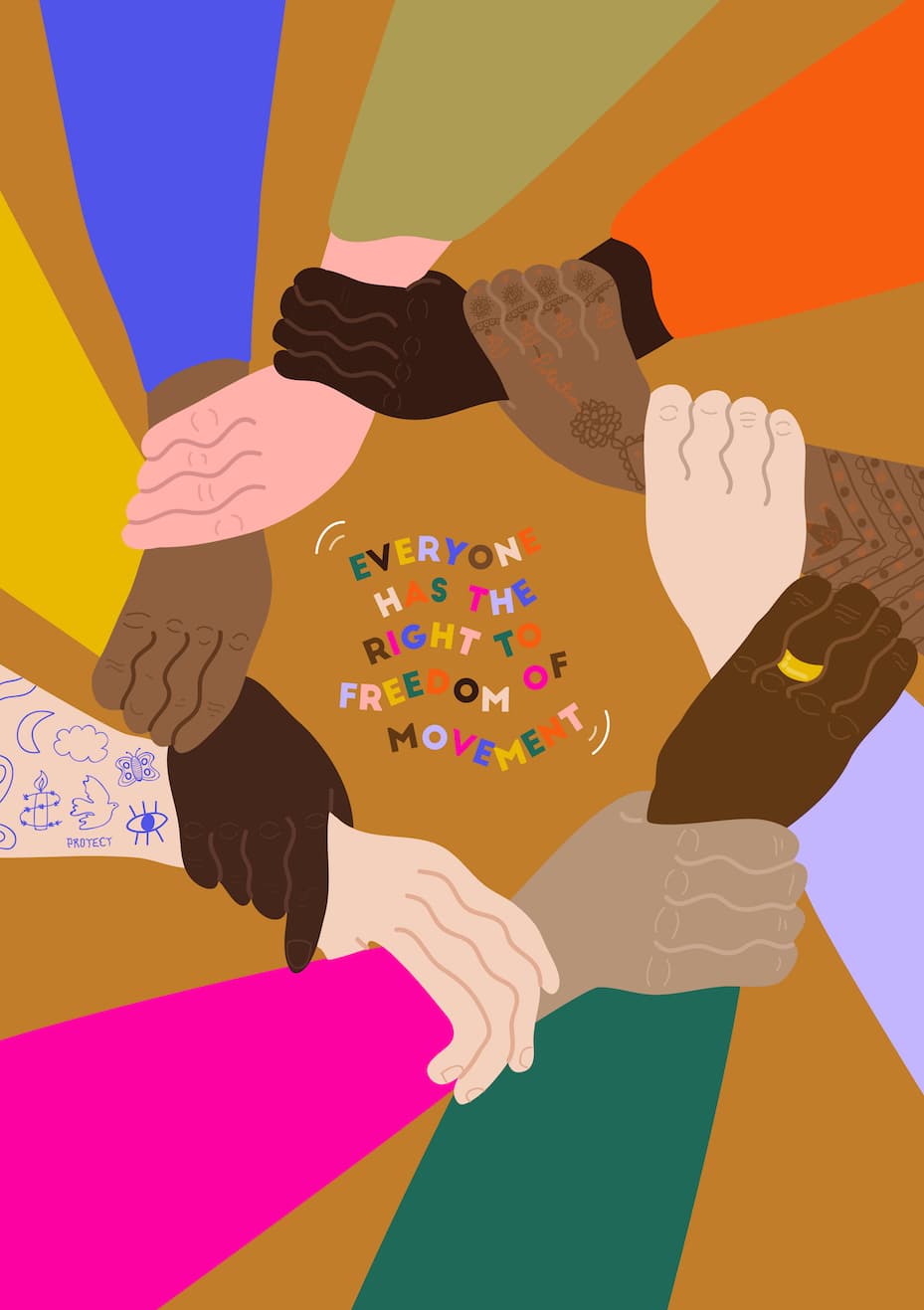
In what other ways does your background impact upon your work?
My mum is Turkish, my dad is British and I was born and grew up in East London which is a diverse part of an already diverse city. I grew up surrounded by lots of different cultures, language (my dad is also a language teacher speaking 5 different languages) and food both in and out of my home, as most Londoners have. I think this has been a big influence on my work in terms of celebrating the richness of having so many different cultures living together.
Many of your creations platform diversity and a political message. Why is it so important that the images we see around us are diverse?
I think representation in of itself isn’t the answer but it is still really important and seeing images of a feminist, equal, inclusive society is a step towards it. I’m really inspired and interested by people, by the communities we have created and continue to create, and the nurture and support we show one another. I draw on existing parts of society that I find inspiring whilst also creating illustrations of the more equal society that I would like to see in the future.
Why is it important for you that your work is politically engaged?
I don’t think we have the luxury of not being political. In a world of ‘othering’ we need to stand up for what we believe in. We can’t take human rights, freedom of speech, freedom of movement, access to healthcare and our NHS (amongst many other things) for granted. We need to be vocal and engaged in our support so that these fundamental rights we used to take for granted don’t disappear.
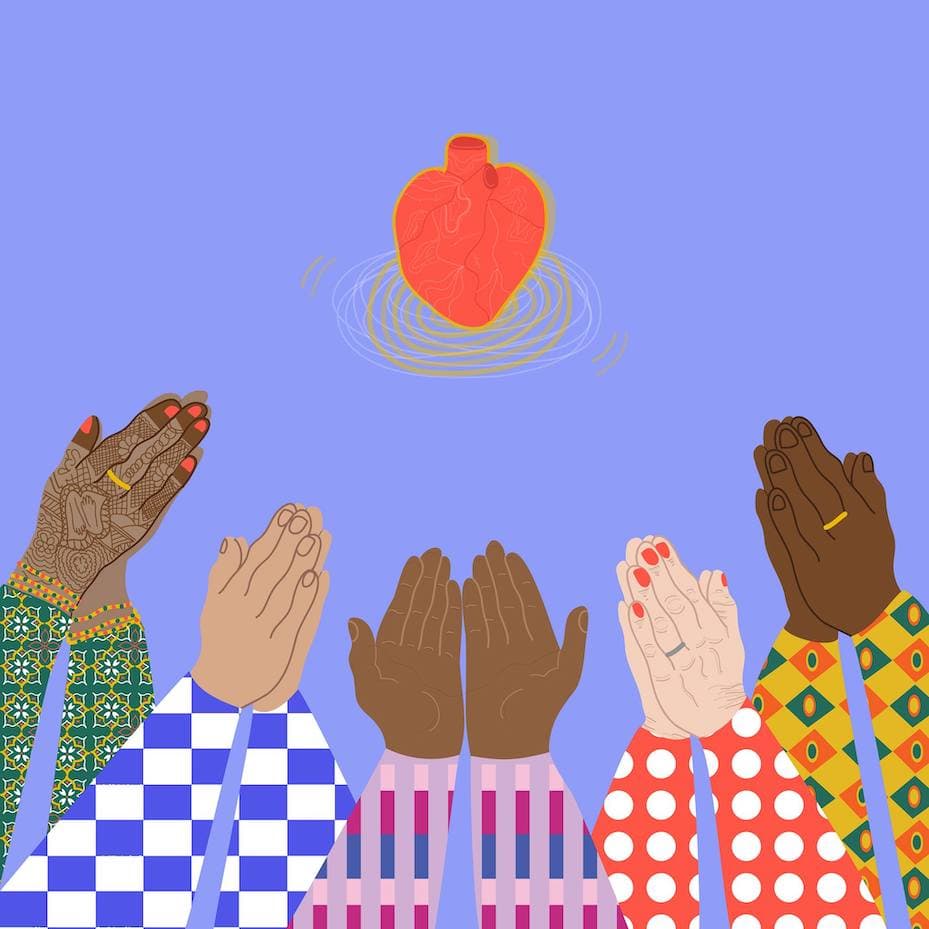
You’re involved with the Creativity 4 Change collective; could you explain more about what this is and why got involved?
Creativity4Change was started by artist Polly Nor and Ione Gamble, founder and editor-in-chief of Polyester Zine. The artist Joy Miessi is also involved in the collective and emailed me to ask if I’d like to take part in it, which I did. It’s a collective of artists using their creativity for change who have all created a piece of art in support of the Labour party.
Creatives, particularly those based in London, are often negatively impacted by job insecurity and the scarcity of affordable studio space. What institutional support do you hope future governments introduce in order to help the creative industries flourish?
I think Labour is the only party and future government in which I can see the creative industries becoming accessible to everyone. Labour’s proposed introduction of free broadband to all by 2030 is one step towards this. In our increasingly digital world it’s so, so important for everyone to have access to broadband. A lot of artist studios don’t have it (including the studio I rent with two other creatives) so creatives have to set it up and pay extra for it themselves.
It’s also the party which is committing to properly funding our public services and libraries, with plans to put £1 billion from their Cultural Capital Fund into libraries, museums and galleries across the country. Public libraries, museums and galleries are so important in developing our imagination and education. They need to be properly funded, as these are places which help keep the arts more accessible.
